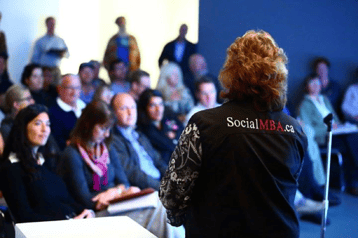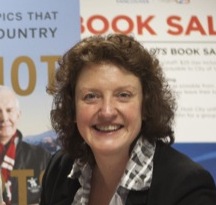In Alberta, a Social RFQ (request for quotes) issued last fall, was intentionally designed to provide work opportunities to  previously homeless, recently housed individuals, who were workforce ready, but faced barriers to employment. This IS social procurement: an approach to better leverage taxpayer funded supply chains to move beyond ‘do no harm’ and start working proactively to ‘do some good.’ Social procurement works on the premise that taxpayer funded contracts should also enhance social value in our communities.
previously homeless, recently housed individuals, who were workforce ready, but faced barriers to employment. This IS social procurement: an approach to better leverage taxpayer funded supply chains to move beyond ‘do no harm’ and start working proactively to ‘do some good.’ Social procurement works on the premise that taxpayer funded contracts should also enhance social value in our communities.
Last fall, the Regional Municipality of Wood Buffalo (RMWB) became the first municipality in Alberta to adopt social procurement. “We had started working together long before the 2016 wildfires” said Hamilton, but the evacuation of Fort McMurray in the spring caused an understandable delay in the RMWB council approving its social procurement framework. “This initiative is now more important than ever,” said RMWB Procurement Supervisor Laurie Gaudet, “Social procurement is about improving lives. People are a top priority of the recovery plan. It just makes so much sense to align our existing spending with the strategic priorities of recovery and of the community. My only question is: why have governments not been doing this for years?”
As a leading social procurement expert, I was recently nominated by the federal government to speak at the World Trade Organization (WTO) Symposium on Sustainable Government Procurement. I first learned about the concept while working as business manager to Vancouver 2010 Olympic Games CEO John Furlong. The Vancouver Olympics were the first Olympics in history to add social criteria to the sustainability strategy. For example, in addition to a price-competitive bid and the capability to deliver, the floral contract for the games also required a community benefit. The successful bidder committed to training women facing barriers to employment and living in the downtown eastside of Vancouver, to become florists throughout the course of the contract.
Social Value Infrastructure Pilot
I believe that Canada’s anticipated $180 billion investment in infrastructure, must also be an investment in people, especially, Canada’s most disadvantaged people. Consequently, I have developed an industry supported pilot that is working to develop a standardized approach to community benefit procurement across multiple governments. Believed to be the first of its kind in Canada, my pilot collaborators include the Vancouver Island Construction Association, the Construction Foundation of BC and the municipalities of Victoria, Qualicum Beach and Campbell River. Taxpayer-funded supply chains can, and should be, better leveraged to reduce poverty and improve the lives of Canadians.
Learn More:
- Visit Sandra Hamilton’s website for more on social procurement
- Read Advancing Social Procurement in Canada by Sandra Hamilton
- Read Social Innovation in Public Sector Procurement to learn about Cumberland B.C. – Canada’s first Buy Social Certified Municipality
- Join us at Cities Reducing Poverty: When Business is Engaged – April 4–6, 17, Hamilton, ON





